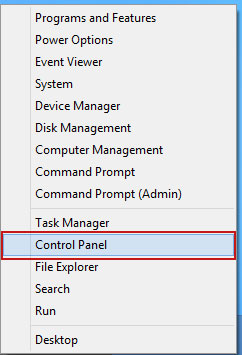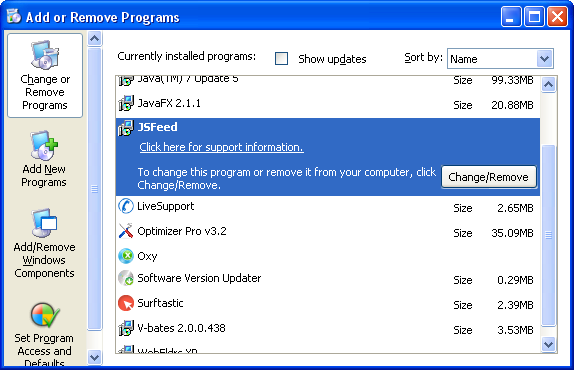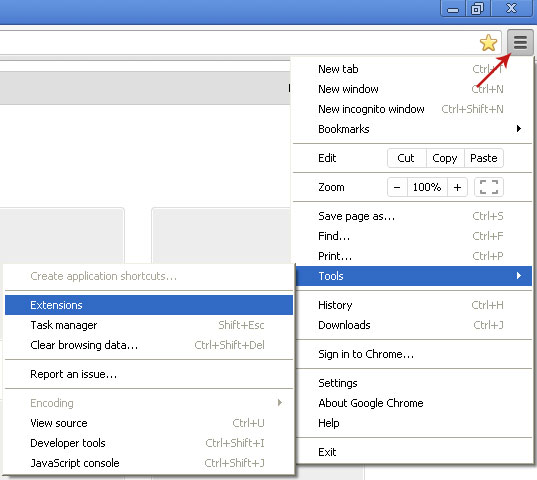True, JSFeed is not as dangerous as some types of malicious software but it can still have an adverse effect not only on your computer but on your user experience too.
What is JSFeed adware?
JSFeed is a computer software program that has been created to display adverts on your PC. Ads usually say "Ads By JSFeed." It invades your privacy by monitoring the websites you visit, collecting data about your browsing habits and then customizing the adverts that you see to reflect recent searches, websites visited and products or services looked at. Everything is done using web browser extensions that may be installed under different names not necessarily JSFeed.
It has some undesirable side effects too. Not least of which is its ability to redirect your search to a website of its own choice when you're looking for something online. It will also slow your computer and Internet connection speed down because the component that this adware installs on your device to track your web usage is working in the background to send constant streams of data back to the software developer.
How can JSFeed affect my computer?
JSFeed by its very nature isn't subtle, and you should know if you have it on your machine purely by all the adverts you're seeing – particularly those that are tailor made to suit your Internet interests. Ads by JSFeed may be pop-up or pop-under windows, banners, 'traditional' advert boxes or links. However, this aside, if you actually took a look at the list of programs that are installed on your PC, you probably won't find anything that appears to be adware.
How did it get installed on my PC?
It is normally bundled with freeware or shareware programs. This method is widely used by software developers to generate income and recoup the development costs of the original freeware. However you may inadvertently install JSFeed by visiting a website that has been infected with it.
How to defend yourself against adware?
Many free software programs give you the option to upgrade, register for, or purchase an advert-free version so of course you could take this route. But if you'd prefer to not entertain the idea of adware in the first place you need to start reading License Agreements properly when you download something as adware is usually referred to in them, albeit in a rather around about way. Sometimes you'll find the wording ambiguous and checked boxes pre-checked (and vice versa) when they shouldn't be so watch out for that. Otherwise, the obvious answer is to download a reputable anti-malware program – ASAP! If you have any questions, please leave a comment down below. Good luck and be safe online!
Written by Michael Kaur, http://deletemalware.blogspot.com
Ads By JSFeed Removal Guide:
1. First of all, download anti-malware software and run a full system scan. It will detect and remove this infection from your computer. You may then follow the manual removal instructions below to remove the leftover traces of this malware. Hopefully you won't have to do that.
2. Remove JSFeed related programs from your computer using the Add/Remove Programs control panel (Windows XP) or Uninstall a program control panel (Windows 7 and Windows 8).
Go to the Start Menu. Select Control Panel → Add/Remove Programs.
If you are using Windows Vista or Windows 7, select Control Panel → Uninstall a Program.

If you are using Windows 8, simply drag your mouse pointer to the right edge of the screen, select Search from the list and search for "control panel".

Or you can right-click on a bottom left hot corner (formerly known as the Start button) and select Control panel from there.

3. When the Add/Remove Programs or the Uninstall a Program screen is displayed, scroll through the list of currently installed programs and remove the following:
- JSFeed
- TinyWallet
- and any other recently installed application

Simply select each application and click Remove. If you are using Windows Vista, Windows 7 or Windows 8, click Uninstall up near the top of that window. When you're done, please close the Control Panel screen.
Remove JSFeed related extensions from Google Chrome:
1. Click on Chrome menu button. Go to Tools → Extensions.

2. Click on the trashcan icon to remove JSFeed, TinyWallet, BlocckkTheAds, HD-Plus 3.5 and other extensions that you do not recognize.
If the removal option is grayed out then read how to remove extensions installed by enterprise policy.

Remove JSFeed related extensions from Mozilla Firefox:
1. Open Mozilla Firefox. Go to Tools → Add-ons.

2. Select Extensions. Click Remove button to remove JSFeed, TinyWallet, BlocckkTheAds, HD-Plus 3.5 and other extensions that you do not recognize.
Remove JSFeed related add-ons from Internet Explorer:
1. Open Internet Explorer. Go to Tools → Manage Add-ons. If you have the latest version, simply click on the Settings button.

2. Select Toolbars and Extensions. Click Remove/Disable button to remove the browser add-ons listed above.


Không có nhận xét nào:
Đăng nhận xét